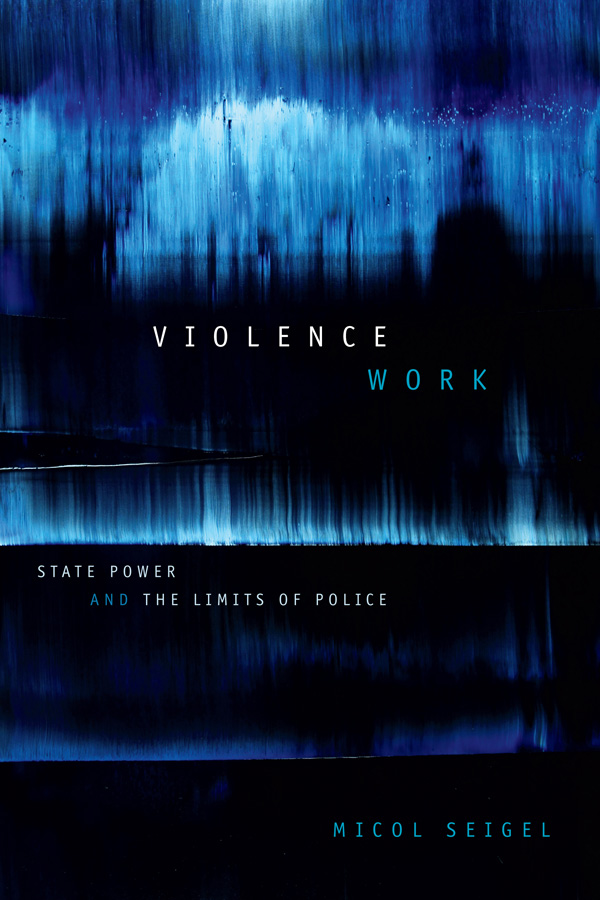Violence Work (2018)
“An exceptionally sophisticated exploration of the nature of policing in relation to ‘violence work.’ . . . Recommended. Graduate students, researchers, and faculty.”
— D. O. Friedrichs Choice
“[Violence Work] reveals a great deal about what we do and do not know about state-sponsored violence as well as how best to get there. . . . Seigel portrays state repression in a relatively new light, leading to refreshing insights about theory, data sources, and unexamined hypotheses. The book kills fascists because if you follow the logic contained within it, you are led directly to perpetrators of violence, as well as the varying types of institutions in which they are found.”
— Christian Davenport Journal of Race, Ethnicity, and Politics
“Violence Work is an eye-opening, detailed and timely book that, for its historical approach, is an unusual appraisal of police legitimacy, which may not only to attract the attention of scholars and students of political science and criminal justice but also of policymakers, especially in this time of discussion of dismantling and defunding the police.”
— Nusret M. Sahin Ethnic and Racial Studies
In Violence Work Micol Seigel offers a new theorization of the quintessential incarnation of state power: the police. Foregrounding the interdependence of policing, the state, and global capital, Seigel redefines policing as “violence work,” showing how it is shaped by its role of channeling state violence. She traces this dynamic by examining the formation, demise, and aftermath of the U.S. State Department’s Office of Public Safety (OPS), which between 1962 and 1974 specialized in training police forces internationally. Officially a civilian agency, the OPS grew and operated in military and counterinsurgency realms in ways that transgressed the borders that are meant to contain the police within civilian, public, and local spheres. Tracing the career paths of OPS agents after their agency closed, Seigel shows how police practices writ large are rooted in violence—especially against people of color, the poor, and working people—and how understanding police as a civilian, public, and local institution legitimizes state violence while preserving the myth of state benevolence.




